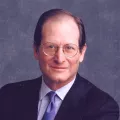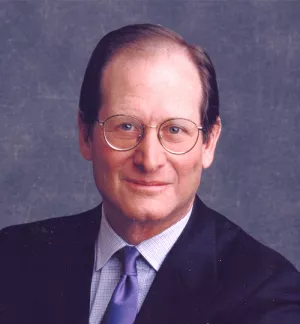A teaching moment presented itself when President Obama was asked at his recent press conference about the arrest of his friend and Harvard professor Henry Louis Gates, Jr.
That moment would have involved one of the most basic principles of our legal and political life:the need for due process to reach the best possible approximation of the "truth."
As everyone knows, the President said that he didn't know the facts, that he was a friend of Professor Gates and that this was a local police matter (hardly the stuff of Presidential news conferences), yet he nonetheless went on to pass judgment: the Cambridge police "acted stupidly when there was already proof" that Professor Gates was in his own home.
But the arrest was for disorderly conduct, not breaking and entering. Even though Cambridge has dropped charges, there is, of course, the police side of the story as reported in the Boston Globe and reflected in the police report of the events. Police officials say the officer in question, Sergeant James Crowley, was following established police guidelines in making the arrest.
Obviously, there are two very different accounts - one involving a distinguished, gentle professor in his home put upon by an overbearing, possibly racist, police officer, another involving a good police officer, with a strong record, who was dealing with an angry citizen. Cambridge's police review board, which the Globe reports is independent of the police department, will consider whether to launch a formal inquiry into the incident.
So much of our political life -- including attacks on President Obama and his policies -- proceeds from factoids spun out of all relation to underlying reality. Facts matter -- and, as anyone who has had to make decisions knows, they are illusive and hard to find. So, not only do facts matter, but so does process. Due process.
Yet the President set a poor example for the country -- wasted his teaching moment -- by passing judgment without the facts, based on an impression.
To say this, is not to say that if, as President, he wanted to use the question as a teaching moment about a second issue -- racial profiling -- he could not, or should not, have done so. It was easy. All he had to say was:
"I don't know the facts of this local police matter. But there is a potential question of racial profiling. Without passing judgment on Professor Gates' arrest, let me address that larger problem which, in my judgment, clearly continues to exist in America today....."
By failing the due process teaching moment, the President undercut his comments on the important issue of racial profiling (not to mention stepping on the main theme of the press conference - the urgent need for health care reform).
Indeed, the great irony of the President's failure to focus on the importance of facts and the processes for ascertaining them is that the problem of racial profiling stems, of course, from making law enforcement judgments based on stereotypes, not on facts which legitimately give rise to a proper stop or arrest.
Two days after the press conference, the President showed up in the White House briefing room to report that had talked to Officer Crowley whom he called "an outstanding police officer and a good man." He said he had not chosen his words carefully and had contributed to the emotional response to the incident. He now said that he thought both Professor Gates and Officer Crowley had probably overreacted.
While he also reiterated his view about the importance of addressing racial profiling and the legitimacy of his raising it, he still did not emphasize the importance of finding facts through the process that is due -- a surprising (continuing) omission from our first law professor President.
Heineman, Ben. “A Due Process Teaching Moment -- WASTED.” The Atlantic, July 25, 2009


